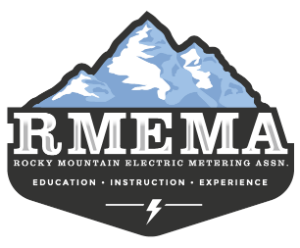Track Descriptions for RMEMA Meter School
Our open format allows you to follow a traditional Meter School Track based on your current level or select courses from any track based on your individual needs, job relevance and areas of interest.
Tracks include Basic, Intermediate, Advanced, Hands-On (advance registration required), and Getting Started (Monday Only)
BASIC TRACK
For meter readers and apprentices, field/customer service reps, linemen, and individuals with no metering experience or less than one year in the meter industry.
Courses in this track provide an introduction and complete overview of the entire metering industry. Participants will gain a fundamental understanding of the metering field and obtain confidence in the equipment used.
Topics covered will be:
- Basic Meter Definitions
- Basic Principles of Electricity
- Evolution of Metering
- Instrument Transformers
- Meter Reading Technologies
- Power Diversion
- Safety
- Service Problems
- Socket Connection and Mathematics Verification
INTERMEDIATE TRACK
For students who have completed the Basic Course, or who have had at least two years of metering experience. The job description should include installation requirements.
Instruction goes beyond single phase and provides a firm foundation for polyphase circuitry and CT/VTs.
Topics covered will be:
- Demand Metering
- Electrical Codes
- Evolution of Field Testing
- Field Certification
- Instrument Transformers
- Installation and Load Verification Applications
- Integrated Communications
- Load Profile Metering
- Meter Forms
- Revenue Metering Sites
ADVANCED TRACK
For students who have completed the Basic and Intermediate Courses, have had extensive experience in the metering industry, or are at the management level.
Provides information on advanced installation applications, metering theory, harmonics, and basic metering electronics. This programming is suggested as preparation for the Meter School Exam as well as Hands-On sessions.
Topics covered will be:
- Advanced Metering Mathematics and Solutions
- Advanced Meter Reading
- Electricity Reference Standards
- Field Problems, Answers
- KE Values in Metering
- Net Metering Accuracy, and Traceability
- Power Quality
- Technologies Software session
HANDS-ON TRACK
For meter personnel who have proficiency in or have successfully completed the Basic, Intermediate and Advanced tracks.
The Hands-On Course will consist of wiring and testing of various 1-phase and 3-phase meters. The wiring and verifying of the various meters will include both self-contained and instrument transformer installations. Harmonic analyzers will be installed for Introduction to Harmonic Analysis. Digital recorders will be installed, programmed, pulse rates calculated, and information downloaded via readers and telephone connections.
Other topics covered will be:
- All Forms Metering
- AMI Methods
- Cogeneration and Private Generation Panel
- Harmonics
- Load and Wiring Verification
- Pulse Values
- Self-Contained and Transformed
- Tour of CSU Solar Panels
- Troubleshooting
- Meter Data Management Application and Function
Class sizes will be limited based on equipment requirements to best serve participants and will be made available on a first-come, first-served basis. Participants that plan on focusing within the Hands-On track are encouraged to arrive at class early and should bring standard hand tools and multi-meters to meter school as appropriate.
GETTING STARTED IN METERING
A one-day course designed specifically for office, clerical, and customer service personnel. This course provides information and answers to those “metering” questions asked by customers. Participants will gain a good foundational background for the “cash register” of the electric industry as well as some basic history and future projects of where this device fits in the industry.
Topics include:
- Metering – Then and Now
- Terminology
- Rates
- Safety and Related Equipment
- Most Commonly Asked Questions

